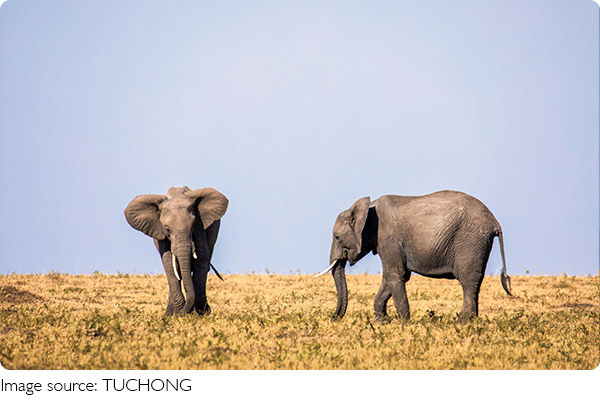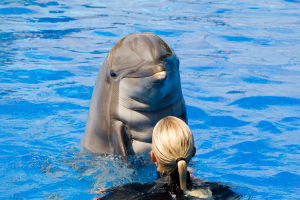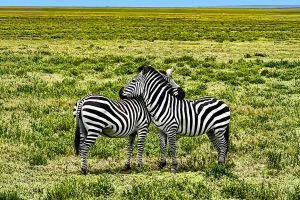Remember What Matters

You're walking through the savanna on safari, binoculars ready. In the distance, a matriarch elephant stops and gently touches a bleached skull with her trunk.
Her herd pauses with her in silence. It looks almost ceremonial. Could this really be grief? Elephants are massive creatures, but what's even more powerful than their size is something most people overlook: their emotional world.
Recent studies have revealed something extraordinary—elephants don't just live in herds; they live in relationships, shaped by memory, loyalty, and even loss.
Let's take a closer look at their secret emotional lives, and how they're more like us than we might expect.
1. A Memory That Binds Generations
The phrase "an elephant never forgets" isn't just a saying—it's backed by neuroscience.
Elephants have enlarged temporal lobes, the brain regions responsible for memory. Researchers from the University of Sussex found that matriarch elephants—usually the oldest females—can recall specific scents, sounds, and individuals even after many years. This memory plays a critical role in keeping the herd safe.
1. They remember waterholes from dry seasons decades ago.
2. They recognize old friends and even rivals after long separations.
3. They avoid danger by recalling the scent of predators or past conflict zones.
This memory isn't just about survival—it's about emotional bonds. When elephants reunite after long absences, their joyful trumpeting and physical touching can go on for hours. They don't just remember. They care.
2. Social Circles Stronger Than Blood
Elephants don't stick together just because they're family. They form deep friendships, choosing specific individuals they prefer to travel, rest, or play with.
According to researchers at Amboseli National Park in Kenya, elephants maintain "core friendship groups" within their herds—clusters of two to four elephants who support one another through grooming, babysitting calves, and coordinated protection during threats.
What's more fascinating? These relationships aren't limited to females or mothers. Young males, who often leave the herd during adolescence, still keep loose social ties and form "bachelor groups" with other males, offering companionship and mentorship.
These are not mechanical groupings. They are emotional alliances.
3. Mourning Their Dead
One of the most moving behaviors in the elephant world is their response to death. When a herd comes across the bones of another elephant—especially one they knew—they pause. They approach slowly. They touch the skull or tusks gently with their trunks.
A study published in the journal Biology Letters documented how elephants consistently show more interest in elephant remains than any other object or animal bones. In some cases, they've even tried to lift the body, cover it with leaves, or stay nearby for hours or days.
Experts like Dr. Joyce Poole, a leading elephant behaviorist, believe this behavior is more than curiosity. It suggests mourning, memory, and respect.
1. Mothers have been seen carrying their deceased calves for days.
2. Herds have returned to death sites years later.
3. Some even go silent after a matriarch dies, changing their behavior for weeks.
These aren't instincts. They are signs of grief.
4. Emotional Intelligence on a Grand Scale
What does it mean for an animal to be emotionally intelligent? For elephants, it's clear:
• They show empathy. Elephants have been observed comforting distressed herd members with trunk touches and low-frequency vocalizations.
• They self-medicate. When sick or pregnant, some elephants seek out specific plants known to have medicinal properties.
• They can cooperate. In a famous experiment, two elephants had to pull ropes together to receive food. They quickly learned to synchronize their efforts and wait for each other.
All of these behaviors—grief, empathy, collaboration—require emotional depth, and elephants have it.

Why This Matters
Understanding elephants isn't just about admiration—it's about ethics. When we recognize that elephants remember, mourn, and love, we can no longer treat them as "just animals."
Zoos, circuses, and poor-quality sanctuaries often break up family groups or isolate individuals. But for an animal with such a rich emotional world, separation can be trauma.
That's why many conservation groups are shifting toward relationship-centered care, where elephant bonds are protected and respected, not disrupted. The more we learn, the clearer it becomes: elephants need more than food and space—they need connection.
Next time you see a photo of a herd walking across the plains, don't just see big feet and long trunks. Think about the bonds underneath—the childhood friends, the grieving daughters, the wise old matriarchs who remember it all.
What would the world look like if we valued emotional intelligence as much as physical strength? Elephants just might be the gentle teachers we never knew we needed.
Have you ever seen an animal show emotion in a way that surprised you? We'd love to hear your story.
-
 Feline FeelingsDo Cats Really Understand Human Emotions? Science May Surprise You!
Feline FeelingsDo Cats Really Understand Human Emotions? Science May Surprise You! -
 Dolphin IntelligenceWhat Makes a Dolphin's Brain So Intelligent? Exploring the unique features and capabilities of dolphin cognition!
Dolphin IntelligenceWhat Makes a Dolphin's Brain So Intelligent? Exploring the unique features and capabilities of dolphin cognition! -
 Nature's Hidden CodeZebra stripes don't just look cool—they repel insects and confuse predators.
Nature's Hidden CodeZebra stripes don't just look cool—they repel insects and confuse predators.